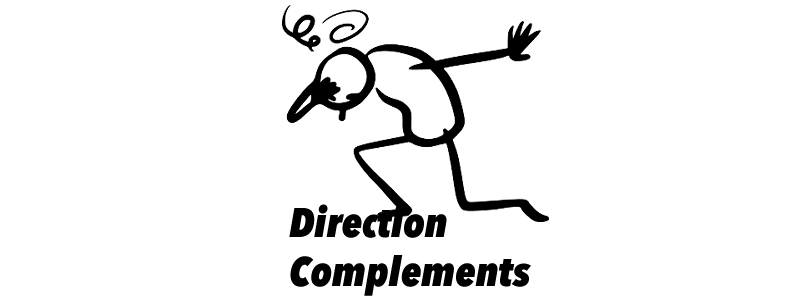This article focuses on the use of direction complements in figurative language, such as in English phrases like ‘clean up’, ‘calm down’, ‘figure out’, etc. If you’re unfamiliar with directional complements, I recommend reading the following links first.
📖 Basic Direction Complement
📖 Compound direction complements
V + 起來/起来 qǐlái
1. Bring things together
加起來加起来
Add up
把這些餡都包起來把这些馅儿都包起来
Wrap all the filling.
你能幫我把孩子集合起來嗎?你能帮我把孩子集合起来吗?
Can you help me gather the children?
2. Indicating completeness or effectiveness
我們先把禮物藏起來我们先把礼物藏起来
Let’s hide the gift first.
門被鎖起來了,我打不開门被锁起来了,我打不开
The door is locked, I can’t open it.
你現在得把錢存起來,以後才有錢買房子你现在得把钱攒起来,以后才有钱买房子
You have to save up the money now so that you have money to buy a house later.
Sense Verbs + 起來/起来 qǐlái
Seems, sounds, feels, etc.
這紅酒喝起來非常順口好喝这红酒喝起来非常顺口好喝
This red wine tastes very smooth and delicious.
她看起來不像50歲的人她看起来不像50岁的人
She doesn’t look like a 50-year-old.
從他的口音聽起來應該是美國東部的人从他的口音听起来应该是美国东部的人
From his accent, he sounds like someone from the East Coast of the United States.
Sense Verbs + 出來/出来 chūlái
Can tell what it really is
我喝出來了,這是1989年法國Pauillac的紅酒我喝出来了,这是1989年法国Pauillac的红酒
I can taste that this is a 1989 French Pauillac red wine.
我看不出來她已經50歲了我看不出来她已经50岁了
I can’t tell that she’s already 50 years old.
她的中文真好,我完全聽不出來他的外國口音她的中文真好,我完全听不出来他的外国口音
Her Chinese is really good, I can’t even tell that she has a foreign accent.
V + 過/过 guò or 過來/过来 guòlái
1. From one place to another place
我接過信(來)我接过信(来)
I received the letter. (From other people’s hands to my hand.)
他把球傳過來他把球传过来
He passes the ball over.
2. The object follows the action to change directions.
我轉過頭(來),打了他一巴掌我转过头(来),打了他一巴掌
I turn my head around and slap him.
我翻過身(來),繼續睡我翻过身(来),继续睡
I turn around and keep on sleep.
3. Beyond the appropriate point (Do not add 來/来)
我睡過頭了我睡过头了
I overslept.
坐過站了坐过站了
I passed my station.
4. Indicating a return to the normal state (Must add 來/来)
經過醫生的搶救,他終於醒過來了经过医生的抢救,他终于醒过来了
After the doctors’ resuscitation, he finally woke up.
你的這個壞習慣一定要改過來你的这个坏习惯一定要改过来
Your bad habit must be changed.
SV + 下來/下来 xiàlái or 下去 xiàqù
Indicating an increasing degree
老師一進教室,同學們馬上就安靜下來老师一进教室,同学们马上就安静下来
The students immediately quieted as soon as the teacher entered the classroom.
他對工作的興趣漸漸淡了下去他对工作的兴趣渐渐淡了下去
His interest in work gradually faded.


